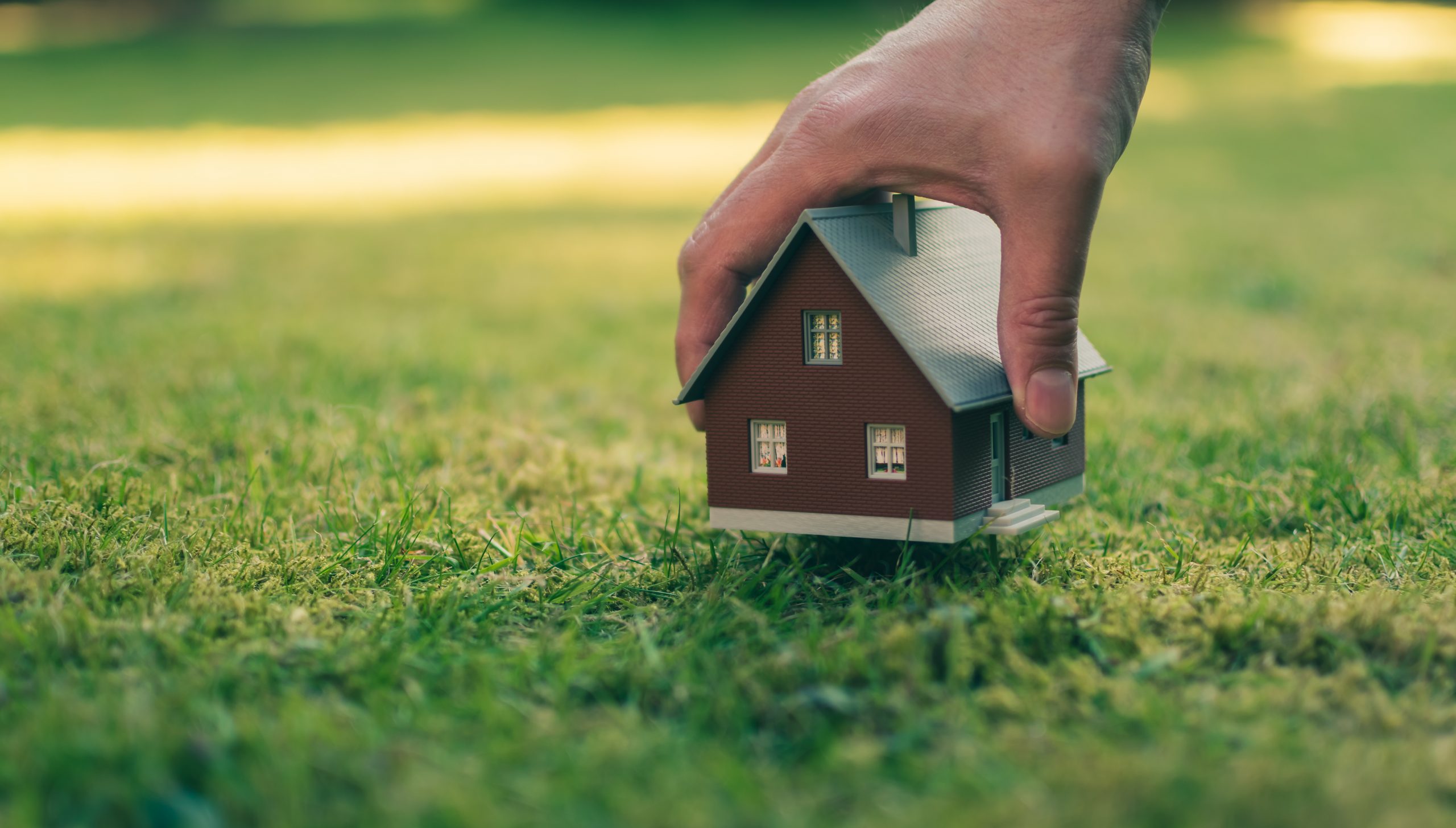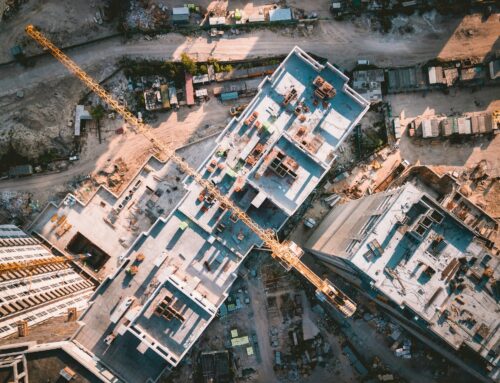When I meet new people, the inevitable What do you do for a living? question is passed around; a brief description of my work ensues, to which I get blank stares from a half-circle of folks listening in. When someone from the group gets it, they will summarize with a version of – So you’re a solar energy developer and the company does real estate investing? To which I will generally reply, Yes. There’s so much more to our business, and there is probably a lesson in there about how to better explain my work. I like to be intentionally opaque sometimes, it seems mysterious.
The introduction to our ill-defined but exciting renewable energy real estate world is usually followed by a barrage of questions about how to invest with our company, how to invest in solar energy, or how to invest in real estate generally. Real estate investing has deservedly captured the attention of the savviest money-people in history and many a millionaire and a few billionaires have been made. Without a doubt, however, both fortunes and small savings accounts have evaporated through poor real estate investing strategies. In contrast to real estate, the new energy revolution is still largely absent from the investing zeitgeist, but there is clearly a hunger for opportunities. Rest assured, you can make money and do the planet some good simultaneously. The climate crisis emerges from the consumption of energy, and energy will be the biggest part of the solution – can you couple real estate and clean energy?
I want to hit some highlights about where people make good decisions, and how the illustrious image of real estate moguls can lul new investors into dangerous traps.
Don’t buy land from an auction
But Max, I can get such great deals on the courthouse steps! you might be thinking, and you’re right, you can. And that’s the point here; the peak between can and will is Mount Everest and more than likely, you are at basecamp looking up. The amount of knowledge, research, time and luck involved in doing the land auction thing correctly is too much for the uninitiated. I will write a post on this subject at some point, so you can avoid these mistakes. It is possible to do well, but 95% of the land sold at auctions is there for a reason, and the reason is not “it’s great and valuable land”.
Don’t buy land and “wait” for it to appreciate or for anything else
Fact; real estate averaged 3.7% +/- annual appreciation over the last 50 years or so. (the National Association of Realtors has a boatload of data here) That’s about 1 point-ish higher than inflation over the same period. So if I came to you and said, Hey! Have I got a 1% deal for you! – you would be well justified to show me the door. Resultingly, buying land, if your strategy is to just … wait, is poorly conceived. Do not do this.
On the second point in the heading; this hold strategy similarly applies to buying real estate on the hope of a developer, or a yet-unplanned community development project, swooping in and paying beaucoup bucks for that old lot, or some cash-negative and crumbling duplex. 999/1000 it’s not going to happen, and even if it does, it’s is not going to happen for you, or in the way you think.
In short, if you do not have a plan, do not buy the land.
Don’t buy old-energy strategies, real estate or otherwise
The fossil fuel industry is writhing and gasping. Sure, in pockets there will be plenty of money made; new natural gas exploration domestically (although that ship has largely sailed, leaving big-oil at the dock) and oil prospecting in the north as the artic opens up could pencil. But, as recently as 2015 Shell took a $4.1 Billion loss poking around in the ocean in the north. You will not beat the smart money, and the smart money at Shell just lost big dollars. This is an outlier for now, but I think indicative of more to come. There will be winners, but the numbers are not in favor of carbon-heavy investing, and by extension not in your favor. Domestic real estate opportunities in oil and gas are slowing, so unless you already own a family oil derrick, I do not think now is the time to buy one. Nearly every big-oil company is investing heavily in renewables, and you should too.
Notice how I use “Buy” and not “Invest” in the above three examples titles. This is an important distinction. “Buying” is going to the local market, picking up a cheap parcel off the shelf, standing on it once, sticking the deed in a dusty file, patting yourself on the back, forgetting about it for 35 years, diligently paying the taxes, passing it on as a legacy, until your kids have to list it with a bottom-feeding realtor who will charge 15%. Run the numbers, that money is so stale by then, it smells like the moldy basement of a lakeside VRBO. Whereas “Investing” is having a specific plan and a path to profitability.
Quick point; all of the above logic extends to your primary residence. It is not an investment, it is your home. I will write a post on this subject as this is controversial and deserves more detail.
Caveat; if the conscious strategy is to use land or a home as a saving vehicle and NOT an investment, sure go for it.
DO invest in cash-flowing real estate strategies
In my opinion, cash flow is among the most underrated investing strategies available. Growth is charismatic, but it’s a bet. The best whitepaper idea is bunk without the right team, timing, and luck. Theory usually does not work in real-world applications. It can work out, but fundamentals investing is consistent and profitable. Unicorn hunting, cryptocurrency, any cure-all tech or industry “disruption” claim is usually fancy-talk for; give me your money so I can run away with it – think Theranos, if it’s too good to be true, it is. Early-stage growth investing places a bet on untested products/strategies/people, and big company growth investing places a bet on continued market domination while mean regression is far more likely. Profitability over long periods, NOT debt-financed growth is your friend.
This is true across all investing disciplines – unless you can afford big ol’ losses, do NOT make big ol’ bets.
DO invest with professional real estate managers
REITs are a tried and true product, and available through most employer-sponsored retirement accounts, or an IRA.
Look, I invest in, manage and help develop real estate for a living. This is complicated stuff made exponentially more complicated by inexperience. The single best way to mitigate risk anywhere is to recognize your own ignorance, and then lean on the expertise of others to cover that ignorance. I do not buy cows, fatten them, and then sell them at auction in the spring or whatever. I do not buy gold and stick it in a bunker. However, if a true expert with a track record of success came to me and said, hey I have been buying gold for 30 years and I have returned X% and gold has A, B and C morally and strategically significant qualities, I would very likely buy some. Learn to rely on the success and expertise of others, and again DON’T make bets, particularly in your blind spots.
Do invest in value-add real estate opportunities
There are a bunch of crowdfunding value add-real estate approaches. Many of whom have solid success records. CrowdStreet is an excellent example of a value-add commercial real estate strategy. The “value-add” being essentially fix-and-flip, which is often the case for small commercial real estate funds/opportunities. It goes like this: make it better, get more rent, sell a better performing building. Many of the fund sponsors on the site are seasoned professionals and CrowdStreet’s numbers speak well to the power of this strategy. Now do not confuse the aforementioned fix-and-flip language to be an endorsement of buying dilapidated homes, as they do on the magic-info-box in your living room or pocket, then slopping some paint on it and re-selling to some low-information buyer. This is really hard to do. Do not do this unless you have a seasoned mentor at the helm.
The other input, to my mind anyway, is the moral vacuousness of this type of investing. There is a systemic affordable housing crisis in this nation, and this strategy may be making it worse. It’s hard to say, but if some new and bright company steps in and creates a market solution to this affordability crisis, I will be at the front of the line.
Real estate is an interesting and daunting beast; a black hole for dollar bills at its worst, and arguably the most consistent wealth creator over the last century at its best. Don’t re-invent this thing, follow the smart money and remember that climate change is real, so don’t go buying that half-priced seaside cottage, unless you want to include snorkels for your tenants.
Transparency and shameless plug; I truly believe that owning land in renewable energy projects is one of the most powerful things an investor can do with their money. It’s predictable, it’s positively impactful, the ROI is solid, and when done well, it is low risk. I wouldn’t be in this line of work if I didn’t trust this. If this interests you, I am always available to talk.
Happy investing.
(As originally published on Medium Here)







Leave A Comment